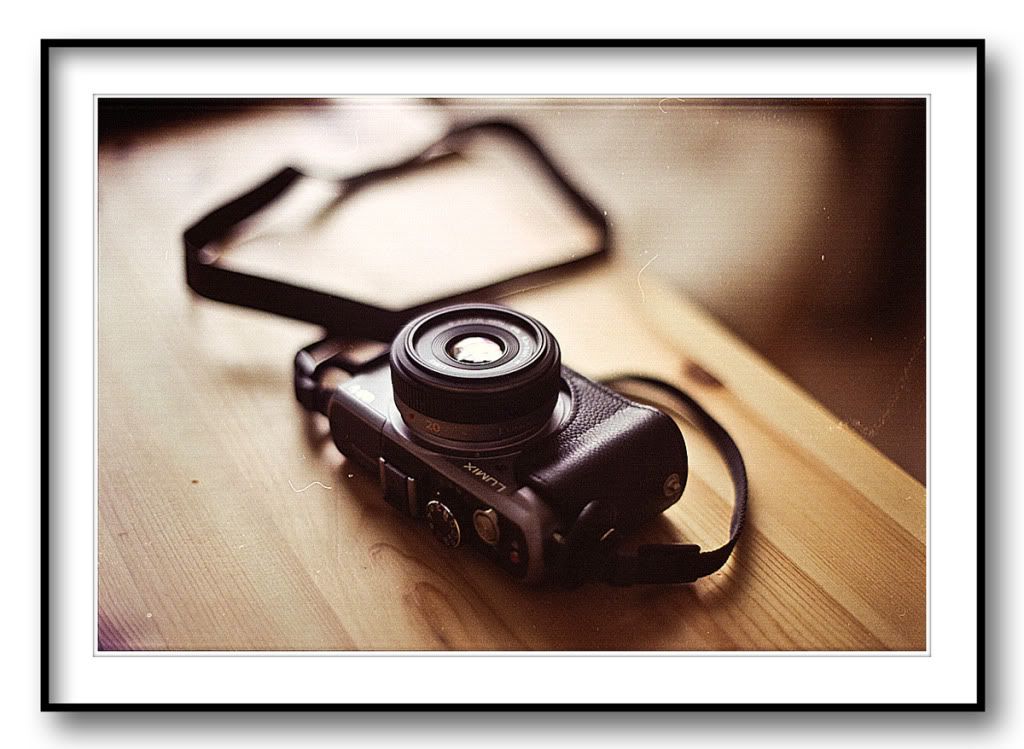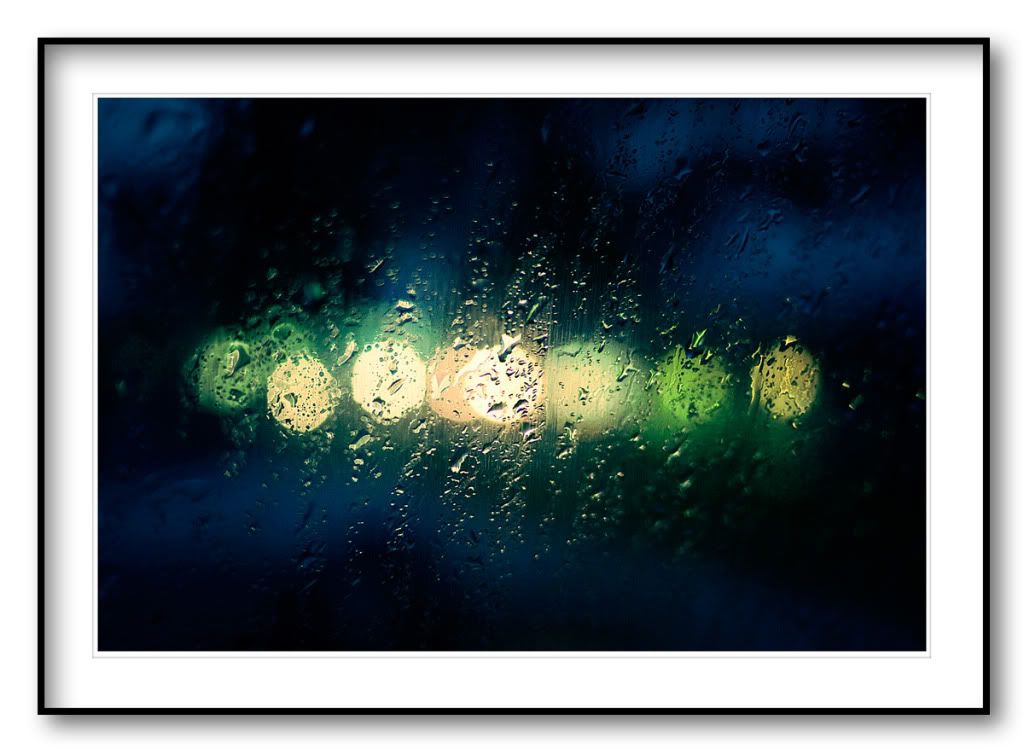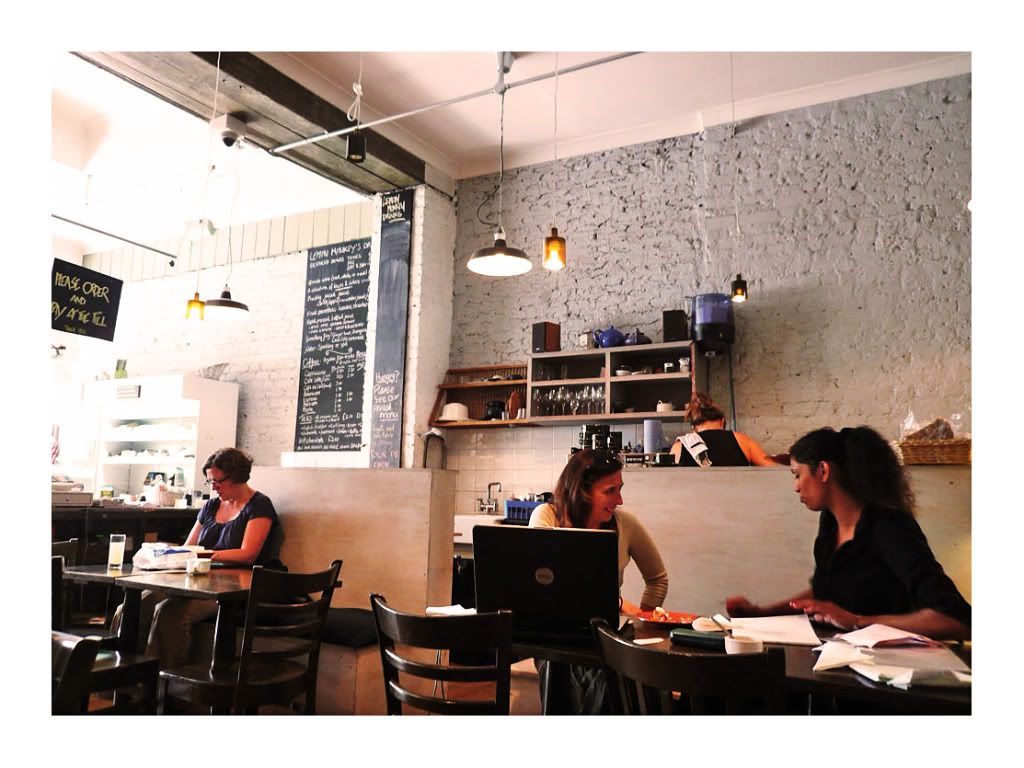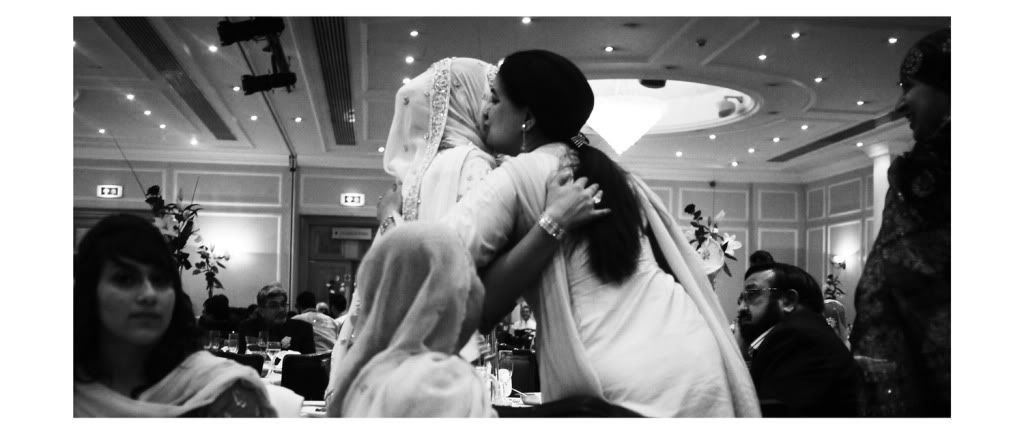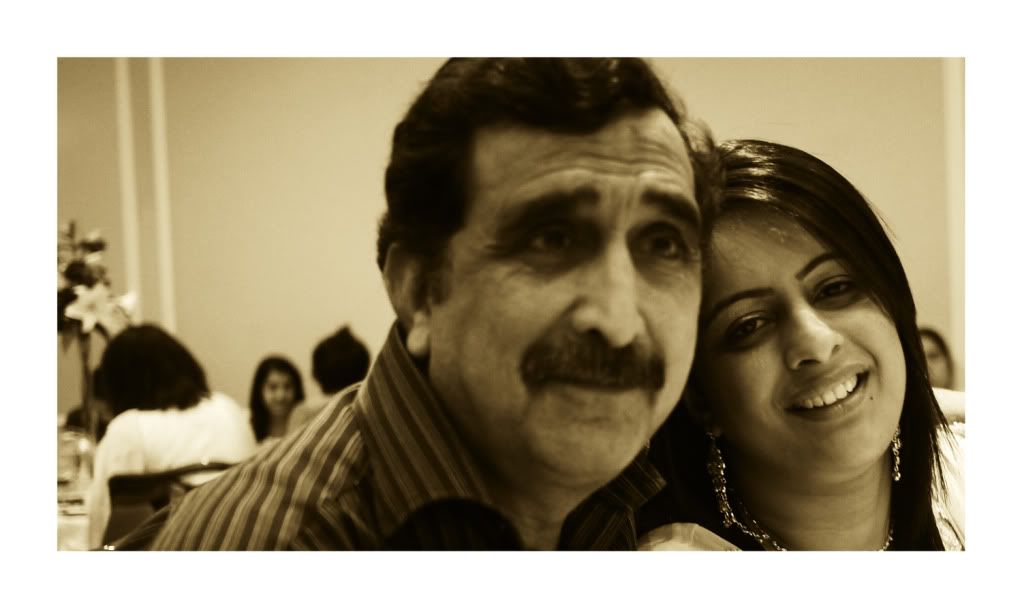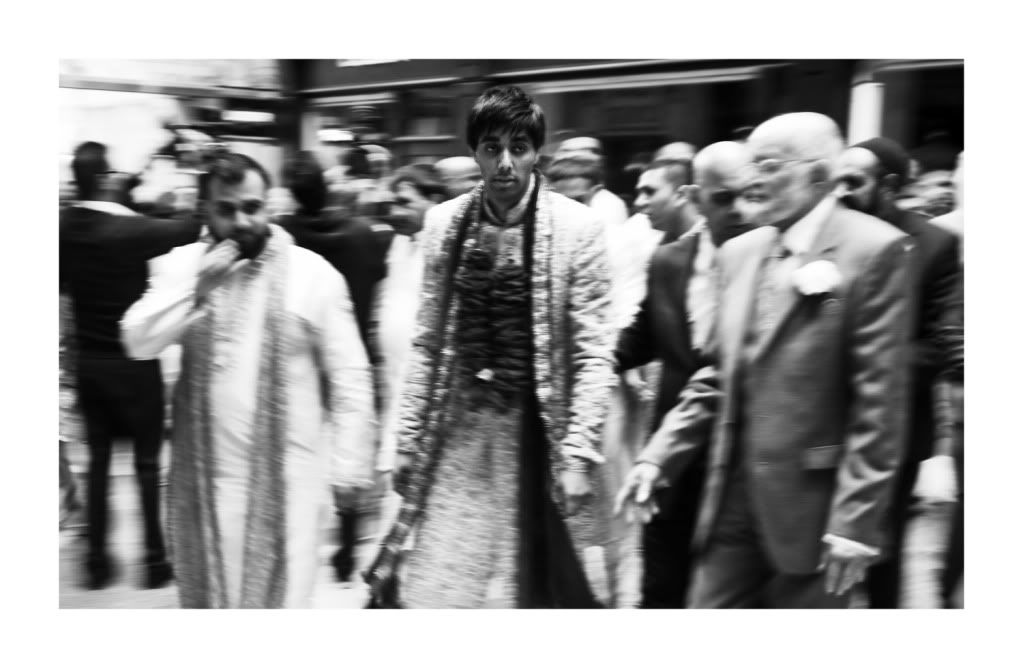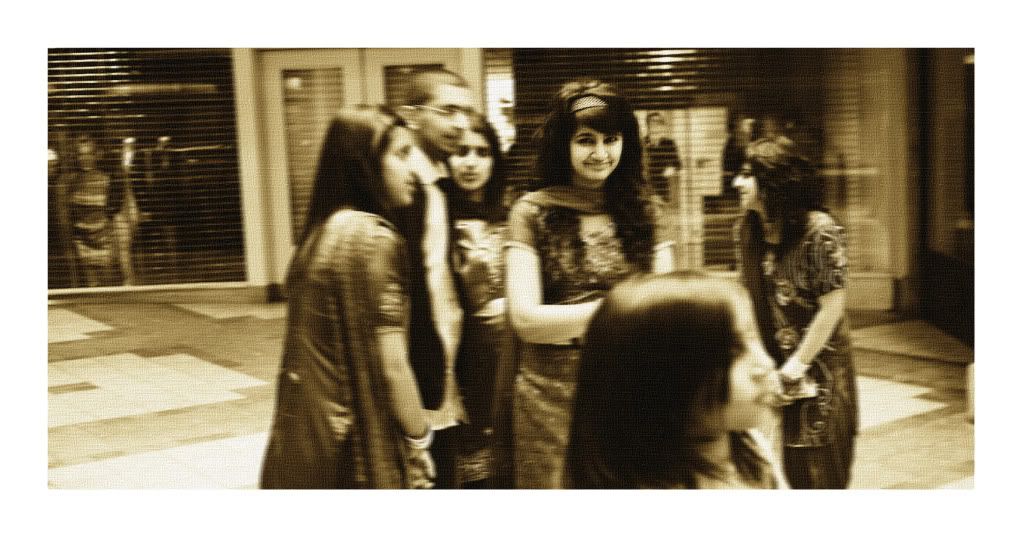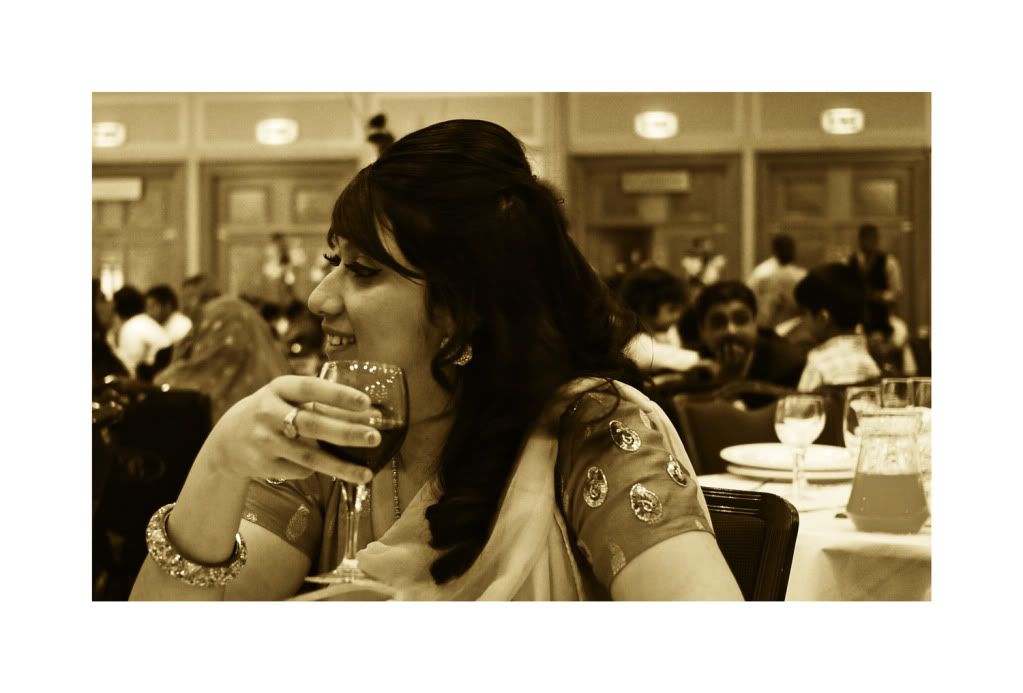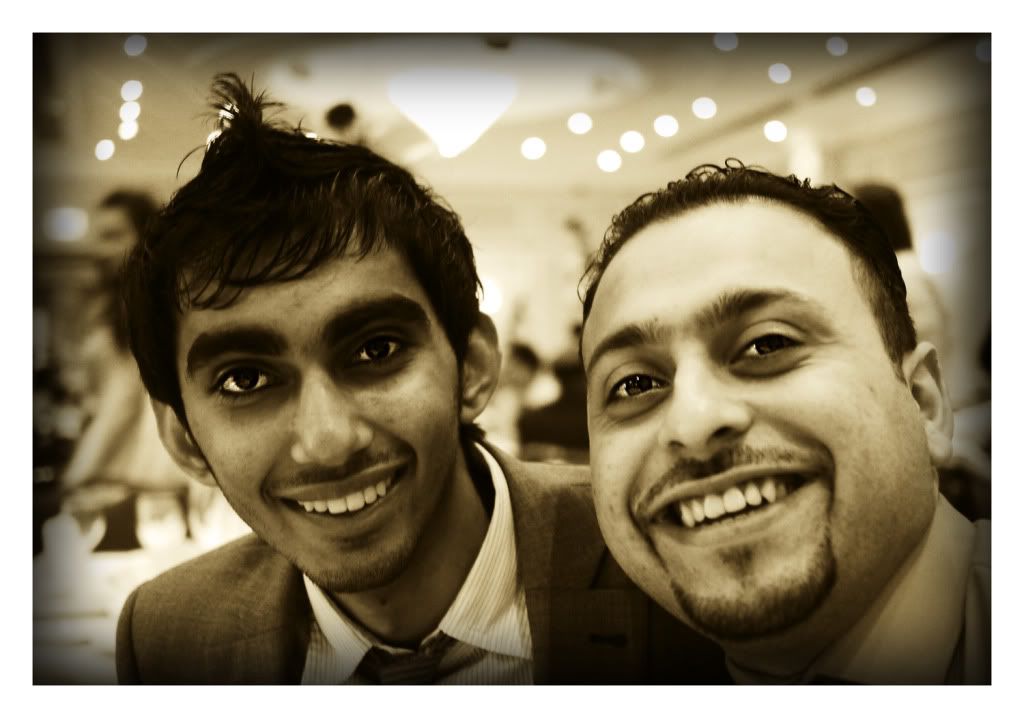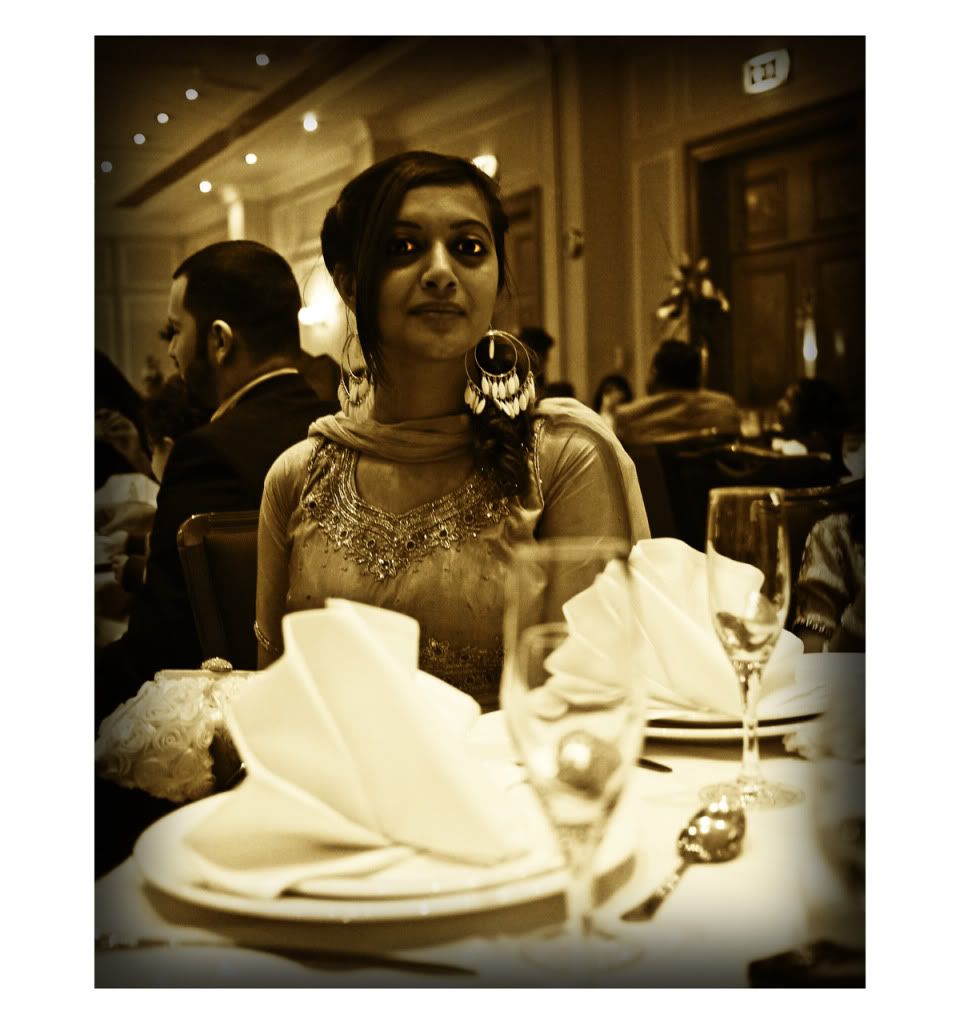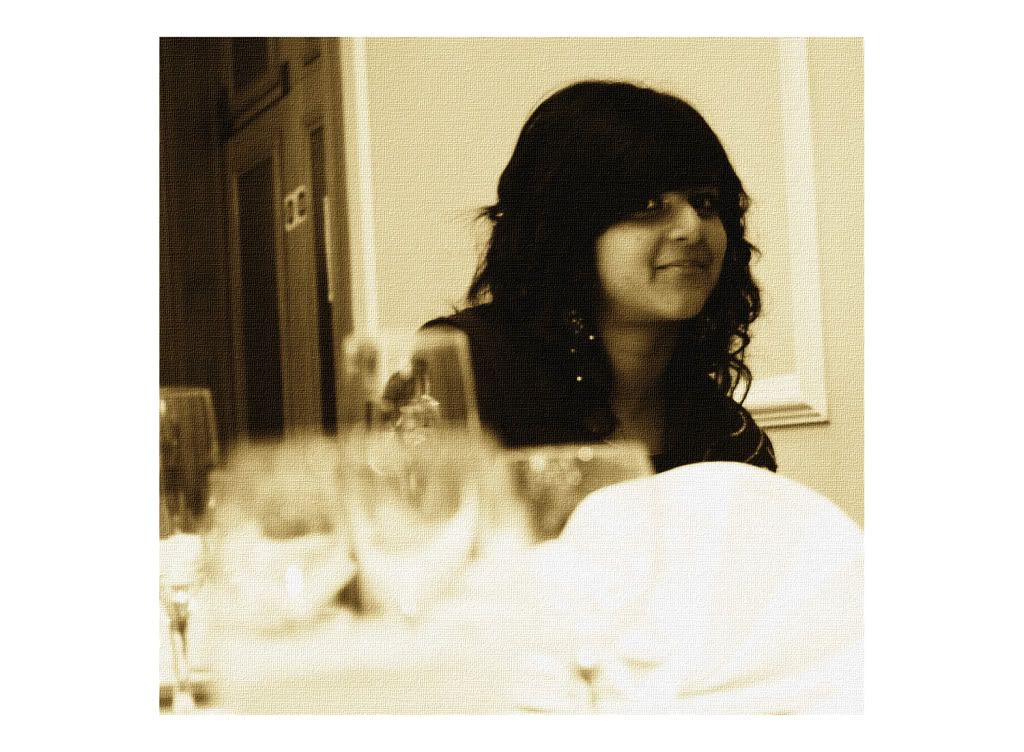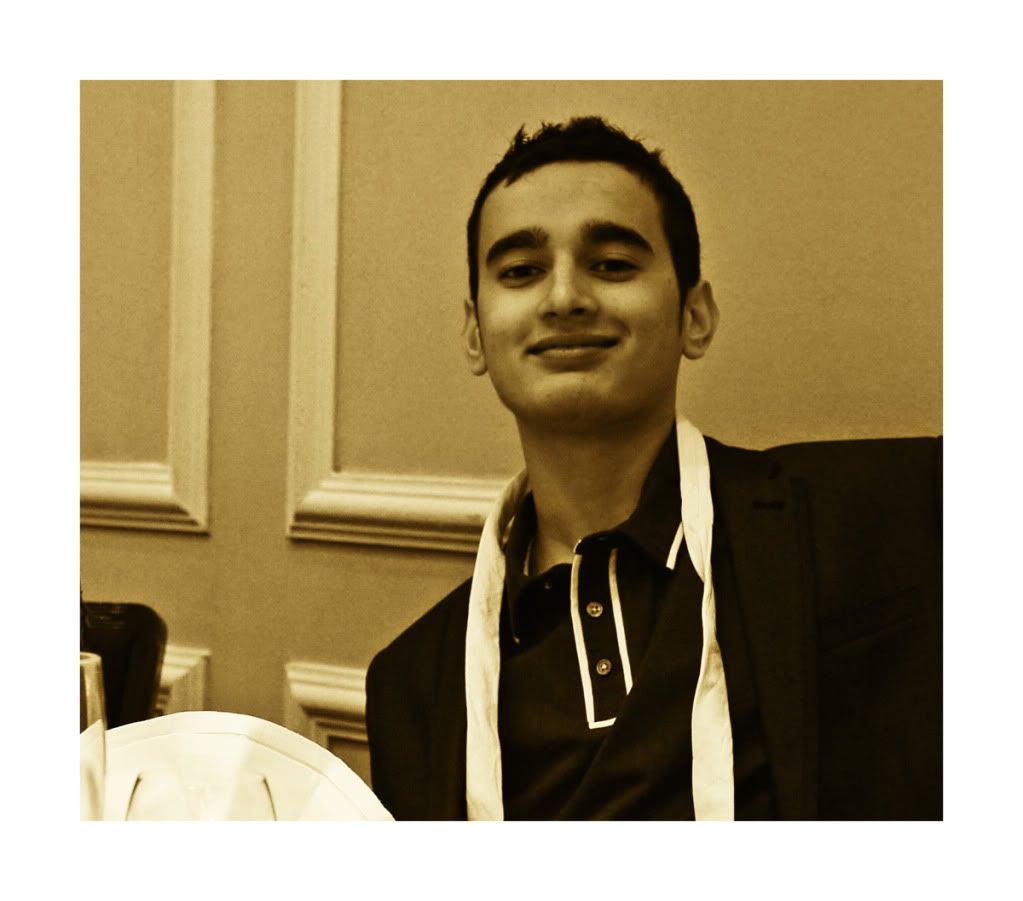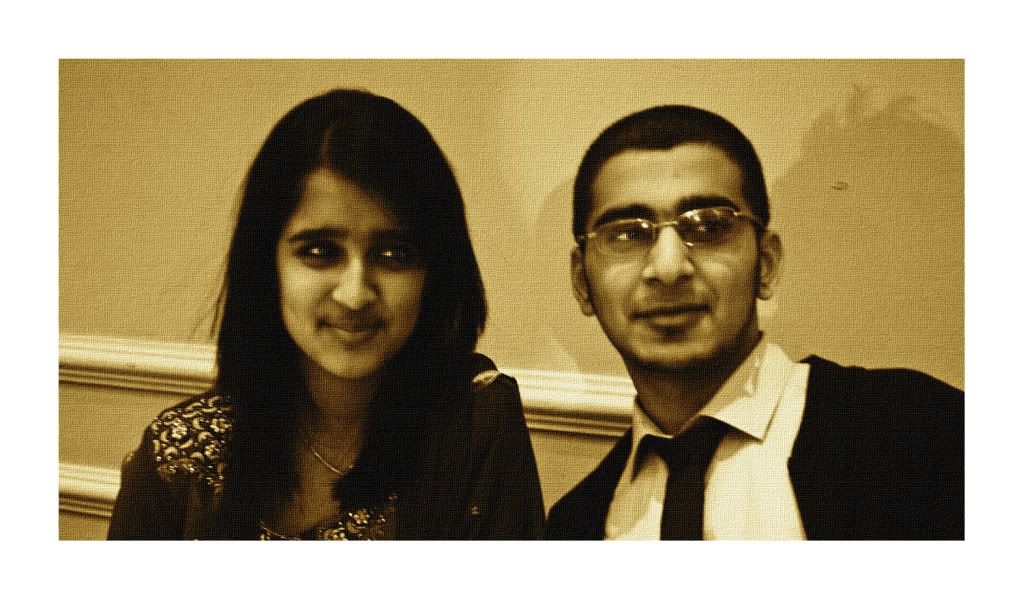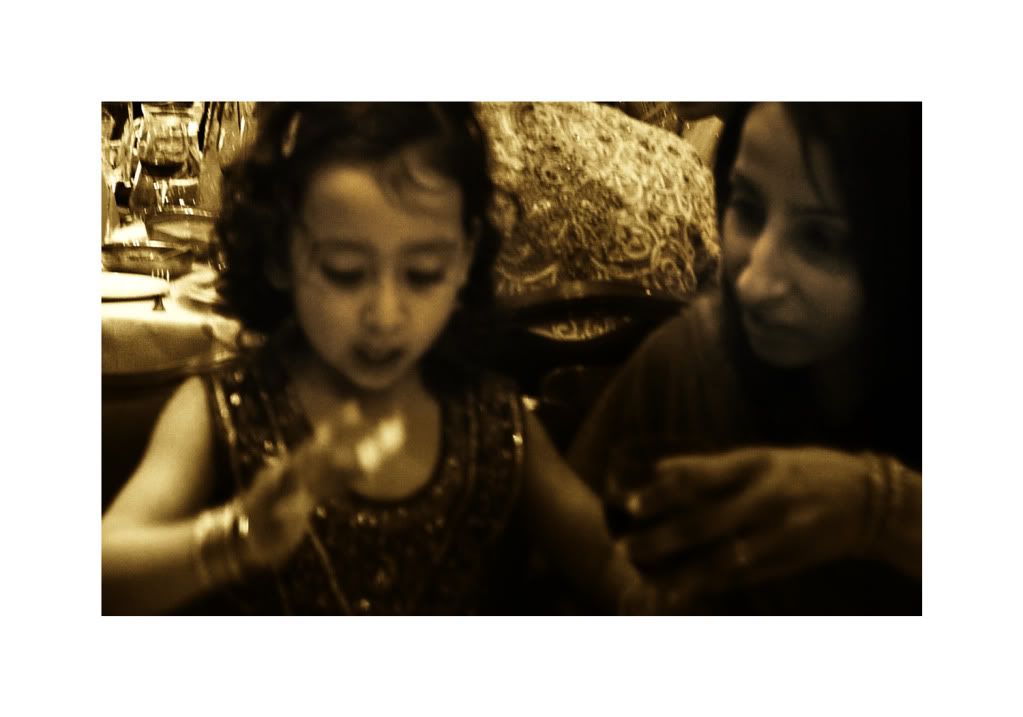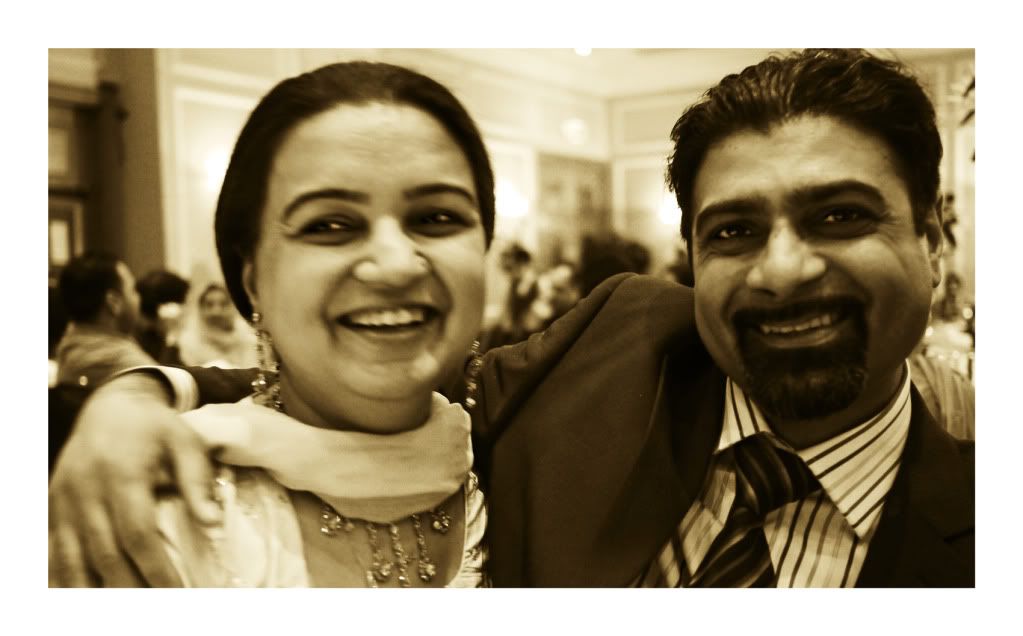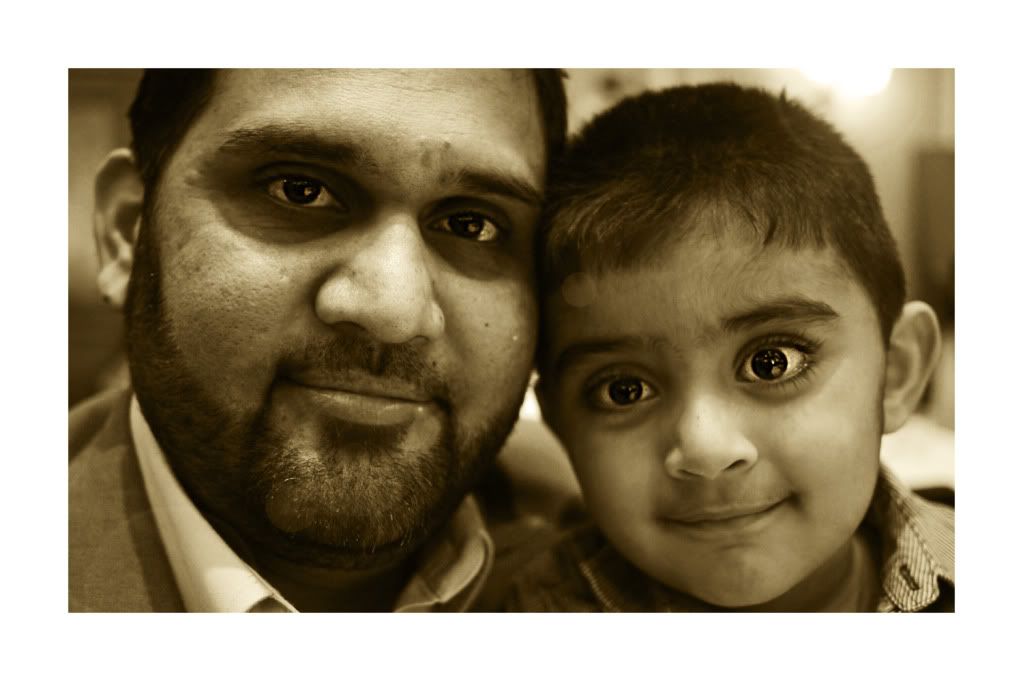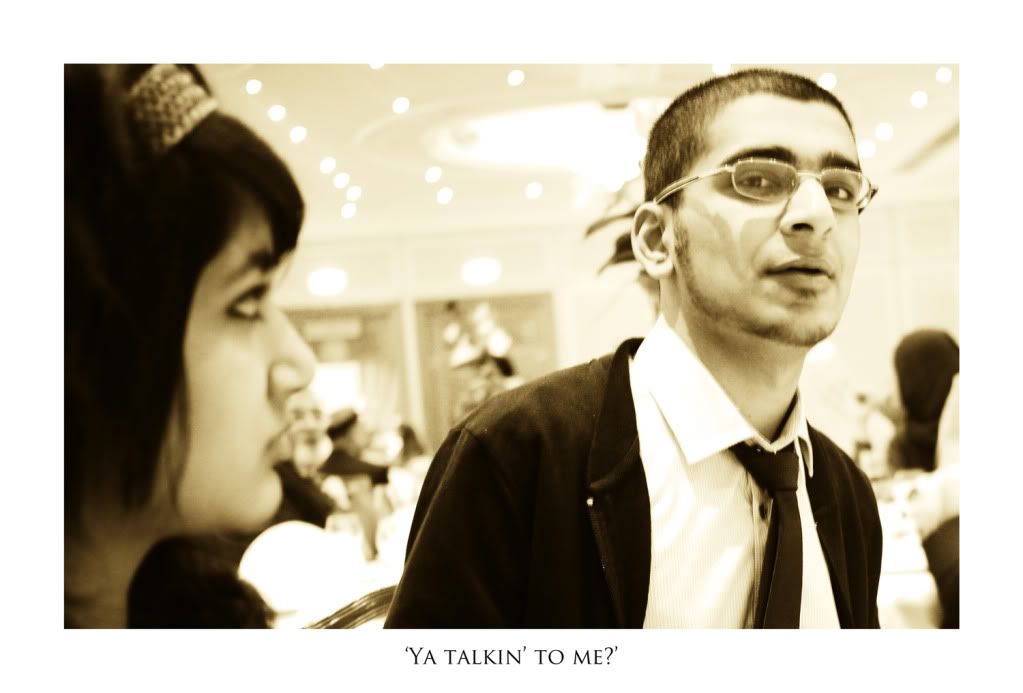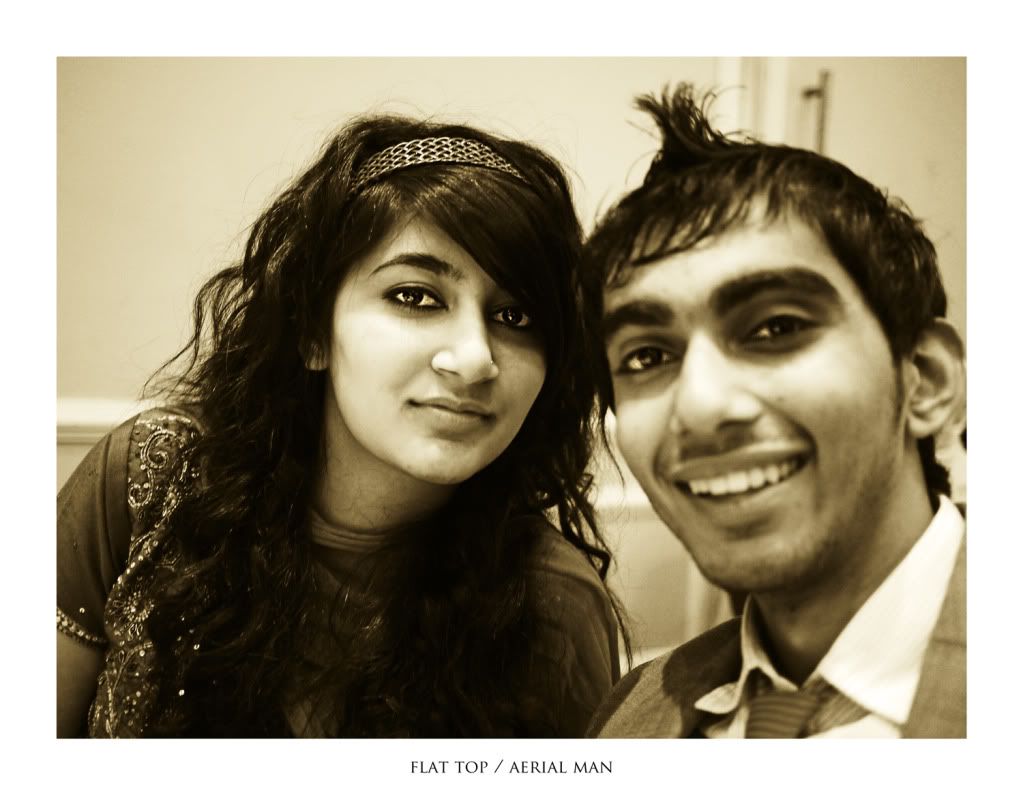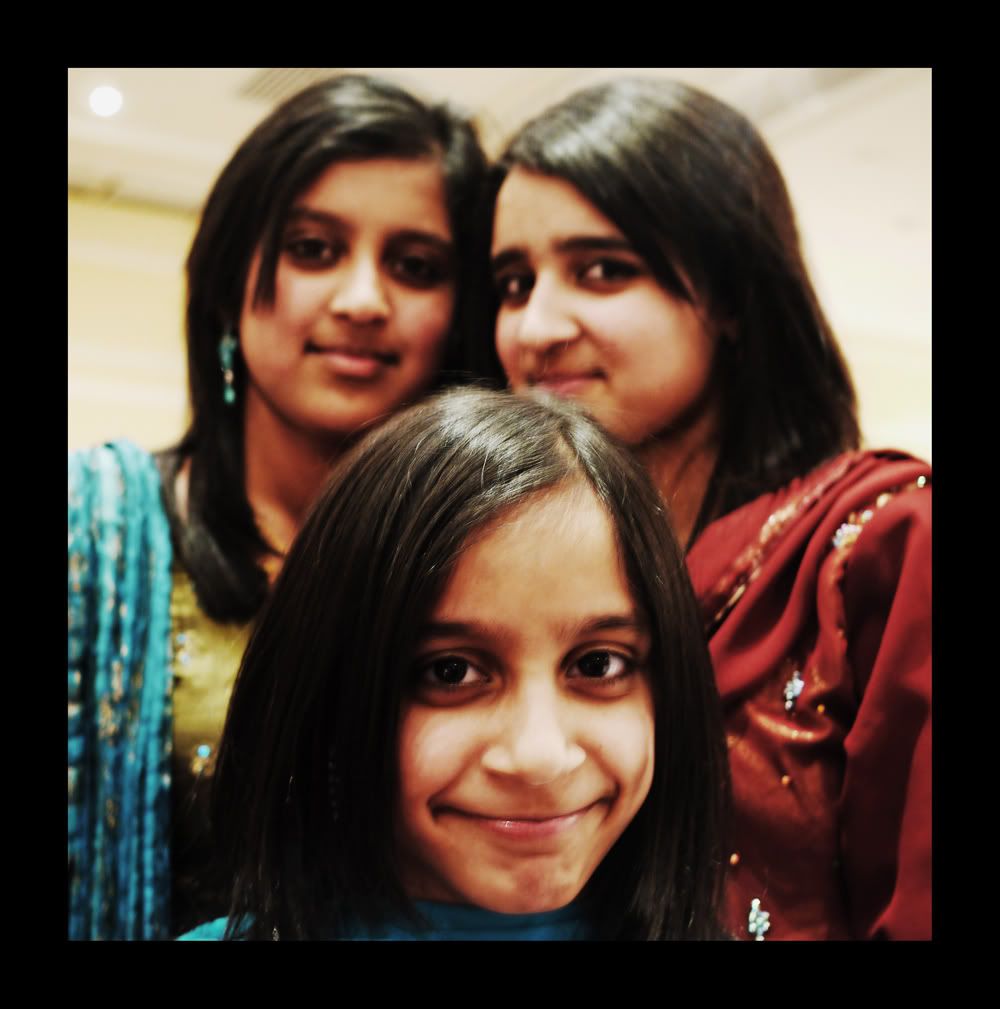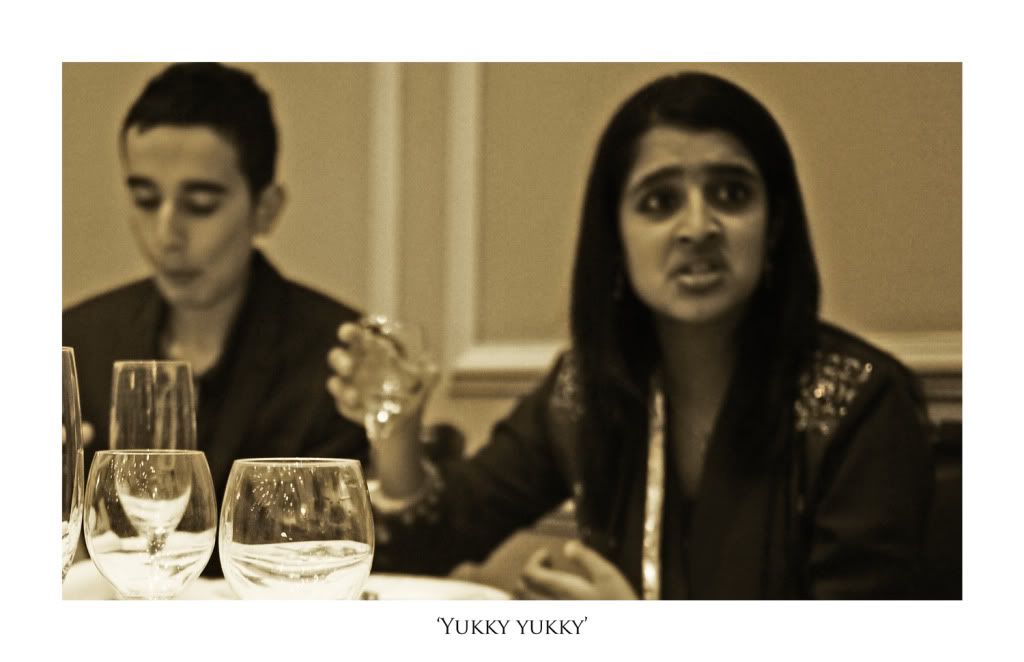The first thing you notice as you approach the outskirts of Birmingham is a yellow haze hovering just above the cityscape. Initially you think it's the car window needing cleaning. But its not. It's a narrow smudge of Haldi yellow, and as the sun sets through it in the early afternoon, it imparts an exuberance not at all unbecoming of a glorious Ethiopian sunset! It's a good omen. The signs are good. Things will be fine at the wedding. I will not babble and bumble my way through the social etiquettes. Birmingham has always been a currypot of exotic flavours - the hues of culture, language, creed and social eccentricity (like plastic wrappings on brand-new carpets). For me, stepping into Birmingham, brings back childhood memories of family visits to the north when I was young. My mum and dad would get me ready (at some godforsaken hour of the morning) and after a dollop of shiny hair oil I was as good as new! We'd get into my dad's yellow Datsun; my dad sporting an embarassing looking Jinnah hat (which is probably also the reason I hated him coming to parents evening at school), my mum in shimmering gold epaulets threading through her ears - and thus attired we'd head north from London - to meet my army of aunties and uncles who babbled in strange tongues and smelt aromatic.
I remember those days vividly; playing with my nephews and nieces amongst red-bricked homes; I remember the leather skinned withered old ladies with jaundiced tongues who smelt of Pakistan; I remember the constant torrent of 'family relatives' passing through the maw of my sisters door all pinching my cheeks red raw; the pungent smell of garlic sizzling in oil; and grey bearded men with skullcaps who had nothing to teach me (and still don't), the putting your headscarf on your head when a man walks in, the frisky women asking me when I'd get married (I was only like 7 years old!). It was a totally different planet.
These memories are all positive and happy. It seems when you look back now that childhood was constantly bathed in blue skies and sunshine. But as you get older you begin to realise that there are dark clouds too. How did we manage to miss those dark clouds when we were young? Answer: innocence.
So as I was saying, here I am now in 2010, older (but not any wiser), approaching the Haldi haze of Birmingham with memories of childhood running through me. I stare at the haze. Where does it come from? I have a theory: the frying pans of hundreds and thousands of evening meals - cooked in the presence of husband, children, grandma and grandpa, and the er next door neighbour Zulfikhar (aka Zulfee) who seems to have a permanent place on the family sofa. But I am digressing. And I am guessing.
The wedding itself was to be held at a plush venue (the Burlington Hotel banqueting hall in the City Centre, for those interested) and plush it was indeed. The carpet as you approached the hall was shaggy and thick and looked as if the animal it belonged to had only recently had its life extinguished. I stepped into the hall and straight into a maelstrom and hail-fire of hundreds of beaming smiles and shotgun colours. Alas the smiles were not for me. I went in unnoticed and uncared for, and was looking out for something. A landing light telling me where I had to land. Luckily, my nephew (bless him) was waving at me from the other end of the hall clad in a bright pink shirt - so at that moment I knew I would land safely. I was saved. No crash landings tonight. I weaved through the obstacle course of tiny children, slightly bigger children, slightly even bigger children, spotty teens, twenty somethings, slightly older folk, hob knobbling grandads and grandmas (not mine) and withered old creatures with walking sticks who had no business being at a wedding. What if they were to choke on their food?
Anyway, I've now seated myself at the table and said 'Hi' to my sisters and nephews and nieces. I have a drink and look around me. It looks scary and I want to hide under the table. I could easily spend the evening under the table and no one would notice. I take another sip of the drink. It's non alcoholic. Damn! The thing is I'm not used to being surrounded by lots of people. I'm not a misanthrope. I do like people. The London Underground trains are packed full of people at rush hour and I have no problem with that, but what I'm talking about is a little different. You don't have to talk or even say Hi to the folk on the London Underground do you? OK, let me say it out plainly: I am not used to being surrounded by so many Asian faces. Not that I harbour any prejudices against them (me?). They are God's people like everybody else. They are God's handiwork; and what a masterful people they are! Full of complexities and layers and contradictions and a thick patina of hair grease. Solving them is like solving a puzzle.
The youngsters are the most fun to be around. Lacking the morose and complaining attitudes of the elders; the youngsters are fresh and cool and minty - like an autumn breeze. The elders are always complaining about some aspect of the wedding and never happy. Either the food is too late in arriving, or the kebabs are too spicy, or the fizzy drinks are in jugs thus loosing their fizz...ad infinitum. The youngsters just want to have a good time and are grateful for the invitation. Where's the gratitude?! Show me the gratitude! And the youngsters wear cool clothes (like me), they have cool hairstyles (like me), they have opinions (like me) and most importantly of all they're sure of themselves. Unlike their parents on the other hand who are constantly struggling with a past that no longer wants them and a future they can't embrace. The youngsters are all 3rd, 4th generation - after the first pioneers (like my dad) who ventured forth from the Indian Subcontinent to forge a better life for himself and his family. The youngsters are more confident. I noticed that. But it's not a faked confidence or a confidence 'purchased' using the currency of ostentatious pretentiousness. And that is gratifying. My parents generation and even the 2nd generation in some cases never had that; for my parents always considered themselves immigrants. And you never really loose that. But not the youngsters. The only immigrants they know are the Somalis and the asylum seekers. And the language they speak is English with a Northern lilt. Urdu or Punjabi is uttered very rarely from their tongues and my educated guess is that in the next couple of generations it too will perish in the smouldering heap of history - as will memories of Pakistan and all thus connected. It is inevitable. A process of dilution. And then one day, the separation from the homeland will be absolute. Like the Iguana Lizards in the Galapagos Islands...but I am digressing.
Anyway, from the Galapagos back to the wedding hall! After the bride and groom had said their vows. and after the mullah had read his overly log sermon - (a sermon he did try to convert into a stand up comedy act - but it didn't quite work out) we we're treated to food. Ah food! The main event! The raison d'etre for being here. And what a carnivorous feat it was too! For starters it was spicy lamb kebabs (with spicy sauce for xtra Oomph), chicken on the bone coated in a sticky tikka massala paste (bright red and fluorescent), a zingy fishy thing (my favourite) and the usual green salads to counterbalance the red hues of the meat dishes. The main course was predominantly organic organism based again - there was chicken, meat and something else I don't recall. Octopus? No, not octopus - I think it was cauliflower. For dessert there was an extremely sweet and bright orange1000 megawatt calorie infused concoction made from distilled carrots - Gajrelah...and, for those on a diet, a lumpy milky dish called Ras Malai. All very nice. All very sweet.
That was the food. What about the conversation? Was is as satisfying? Put it this way. The best conversation I had was in the gents toilet when I asked someone for the loo roll...
...only joking. I would not be so mean and nasty! The best conversations were as follows (in no particular order):
1) On the youngsters table discussing latest hair styles and fashion trends and the merits of doing a degree in English Lit.
2) Asking people to be 'spontaneous' for the pictures I was taking and trying to make the children laugh so that they would show their teeth for the photographs. It's not difficult. You just have to say something silly and puerile like: 'bummblebee bum bum'. Spontaneity is always good in photography.
3) Trying to wriggle my way out of one conversation that had strayed into the perennial 'why are you not married yet Wasim?' territory. This question, usually dispatched with an all knowing smug countenance, is said in such a manner that it makes you feel like you have a lethal disease. Yes, I have a disease. It's called 'love of independence now fuck off and leave me alone before I start quoting Cicero' is usually my response (without the expletives of course)
4) Loo roll (discussed previously)
5) A chat with the bride's mother who was thanking me for coming. Thank you very much for having me!
5) A chat with a little human. A baby. I think it was 7 months old. Not sure who it belonged to though. The baby was just rolling around the carpet rummaging for scraps of food. I placed it on my lap and we talked much. We agreed on much. Like the general stupidity of the people around us. It told me about its nappy and how it was constantly chaffing its bum. I told it about my constant ear ache from the parrot like chattering's of the women in the hall.
6) A girl. Yes a pretty girl. She was facing me 2 tables away and kept looking at me. We didn't actually talk as such. It was mainly communication through facial twitches: eyebrow arching's, lip curling's, frowning's, smiles, and playful twisting of the hair (not mine hers). I think she was attempting to tell me something: 'You there in the smart clothes and intelligent looking glasses. Yes you there! You have great genes and I want to use your sexual organs to make a baby'. I wouldn't have minded her using my sexual organs - she can have them, well not have them, she has to hand them back as I use them, but she can use them - but its the making a baby part that sends shards of lightning down my spine and a rumble through the empty dungeons of my heart.
Talking of which I'm not sure when those rusted joints in the dungeon of my heart will be prised open. Perhaps someone with a bolt cutter will come along and let some air in. And that's that! That was the wedding.
That wasn't really funny was it?
A bit sad huh? Especially the ending huh? With all that dungeon talk huh?
Well I don't care what you think. I love dungeons and I'm escaping into mine now, and no you can't join me. Go get your own dungeon. My dungeon belongs to me!
___________
